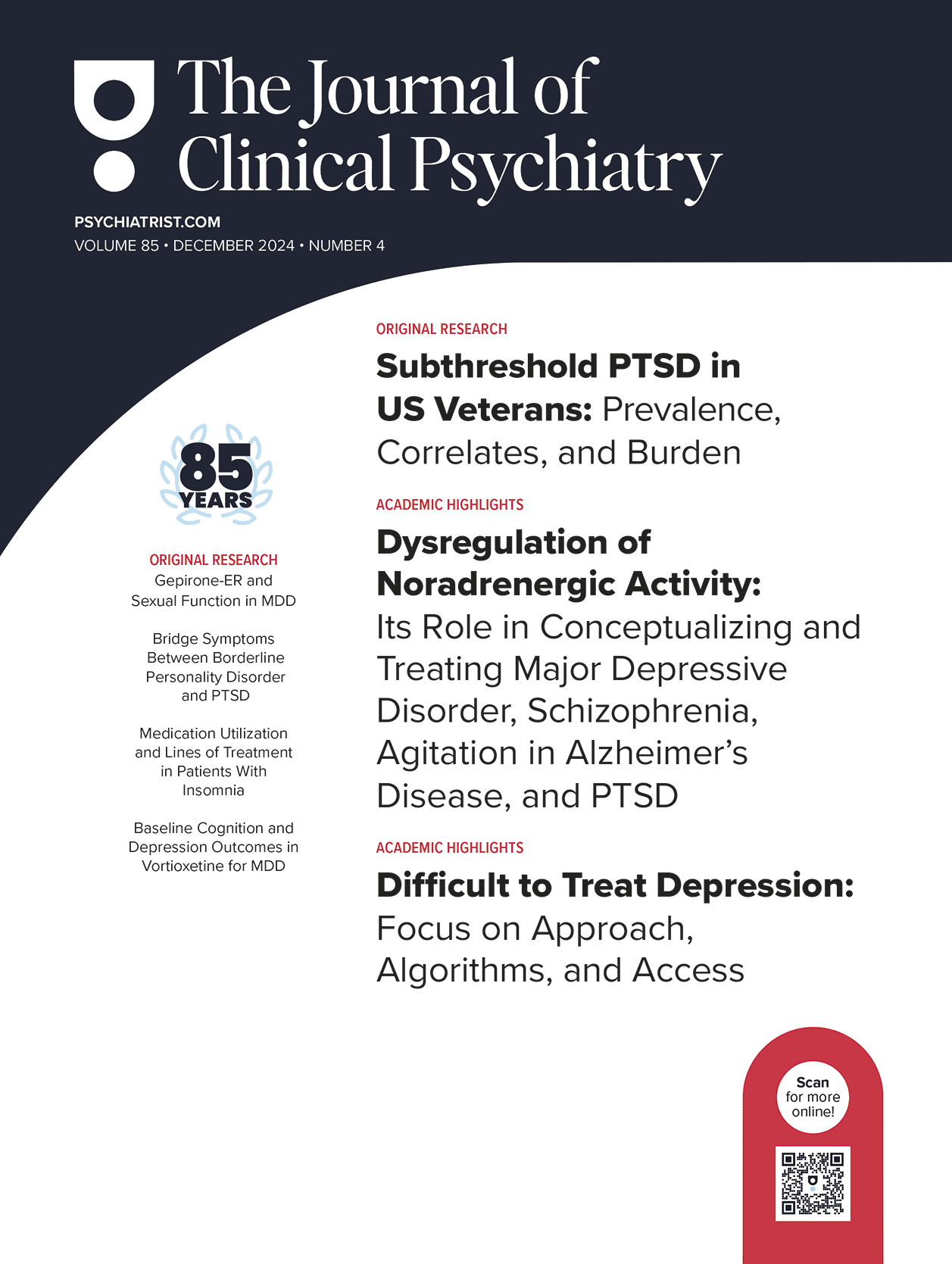Background: Psychiatric patients are known to be at high risk of developing cardiovascular diseases (CVDs), leading to an increased mortality rate.
Objective: To assess the CVD risk (presence of metabolic syndrome [MetS] and calculated 10-year CVD risk) in a Swiss psychiatric cohort taking weight gain-inducing psychotropic drugs, compare the findings to a Swiss population-based cohort, and evaluate the prevalence of participants treated for metabolic disruptions in both cohorts.
Methods: Data for 1,216 psychiatric patients (of whom 634 were aged 35-75 years) were obtained between 2007 and 2017 from a study with metabolic parameters monitored during psychotropic treatment and between 2003 and 2006 for 6,733 participants from the population-based CoLaus|PsyCoLaus study.
Results: MetS as defined by the International Diabetes Federation (IDF) was identified in 33% of the psychiatric participants and 24.7% of the population-based subjects. Specifically, prevalence per the IDF definition was more than 3 times higher in the psychiatric cohort among women aged 35 to 49 years (25.6% vs 8.0%; P < 10−4). The psychiatric and population-based cohorts, respectively, had comparable predicted CVD risk (10-year risk of CVD event > 20%: 0% vs 0.1% in women and 0.3% vs 1.8% [P = .01] in men; 10-year risk of CVD death > 5%: 8.5% vs 8.4% [P = .58] in women and 13.4% vs 16.6% [P = .42] in men). No difference was observed among the proportion of participants with MetS treated for metabolic disturbances in the two cohorts, with the exception of women aged 35-49 years, for whom those in the psychiatric cohort were half as likely to receive treatment compared to participants in CoLaus|PsyCoLaus (17.8% vs 38.8% per the IDF definition; P = .0004).
Conclusions: These findings emphasize the concern that psychiatric patients present an altered metabolic profile and that they do not receive adequate treatment for metabolic disruptions. Presence of metabolic disturbances should be routinely assessed, and adequate follow-up is needed to intervene early after illness onset.
Continue Reading...
Did you know members enjoy unlimited free PDF downloads as part of their subscription? Subscribe today for instant access to this article and our entire library in your preferred format. Alternatively, you can purchase the PDF of this article individually.
Please sign in or purchase this PDF for $40.00.
Save
Cite
Already a member? Login




